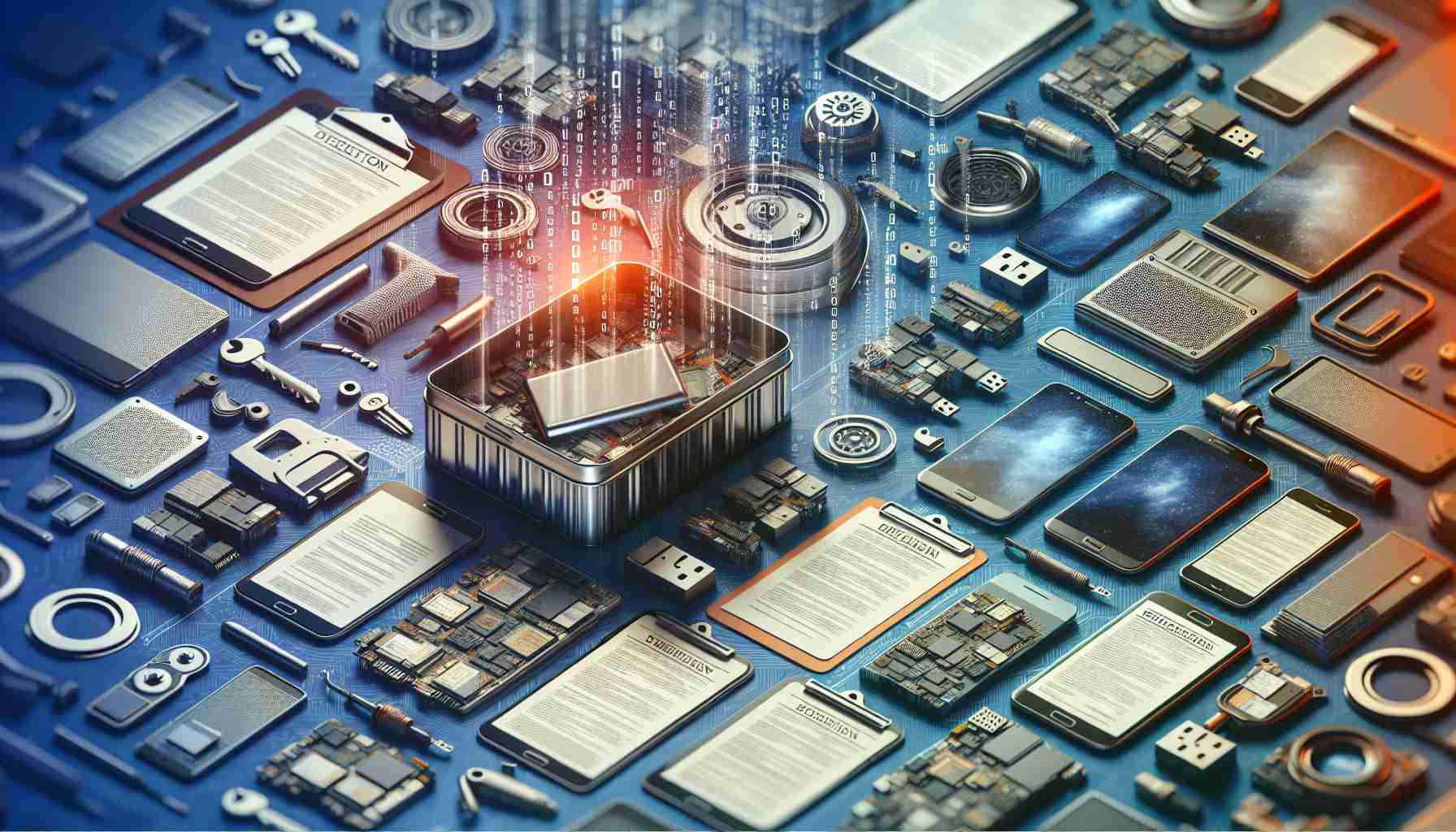Samsung Electronics Prepares for Pre-owned Phone Business Expansion
The landscape of the pre-owned smartphone market in South Korea is looking up as telecom companies begin offering free data deletion services and Samsung Electronics gears up for an official launch into the refurbished phone business. Alongside these corporate moves, the government is set to further legalize and standardize the industry by the end of the year, signaling a brighter future for the second-hand smartphone trade.
LG U+ has initiated a ‘Neighborhood Used Phone Diagnostic Center’ service, which guarantees the thorough removal of personal data from devices. This feature, provided in collaboration with Blancco Korea, allows both LG customers and the general public to safely prep their phones for resale at no cost. Similarly, KT’s subsidiary KT M&S will be rolling out its own comprehensive personal data deletion service called ‘Goodbye Cleaner’ to all its communication stores nationwide during the first half of this year. This service will ensure that all personal data is erased and provide a certificate of deletion for customer peace of mind.
On Samsung’s end, they’re gearing up for their own venture into the realm of pre-owned phones. This follows the establishment of the ‘Galaxy Value Innovation’ team within its MX Business Unit Sales Innovation Team, tasked with examining and researching potential strategies for the domestic used phone market. Samsung’s refurbished phone business has already taken off overseas, offering repaired and refurbished devices at prices below that of new models. It’s expected that a similar initiative will soon be introduced in South Korea as well.
The government is concurrently supporting the refurbishing business landscape by establishing a certification system for companies dealing in used phones. This legislation, passed by the National Assembly in January, focuses on privacy protection and device quality validation. The Ministry of Science and ICT has revealed that applications for certified pre-owned smartphone businesses will start being accepted in July, with the regulatory framework slated to kick in by September.
The certification system is anticipated to resolve prevalent issues with unverified and potentially faulty devices and insufficient data clearances causing privacy leaks. As the pre-owned smartphone market has been growing, shown by a 3.8% increase to 7.08 million devices in 2022 per a report by the Korean Information Society Development Institute, this new initiative could not only mitigate consumer risk but also encourage a stronger second-hand market. With high-end new smartphones costing upwards of 2 million won, consumers are turning to refurbished phones as a more viable option, and this new regulatory environment aims to provide a safer, more reliable solution.
Advantages of South Korea’s Enhanced Pre-owned Smartphone Market:
– Increased Consumer Confidence: With the data deletion services and the government’s certification system, consumers can have greater peace of mind regarding privacy concerns and the reliability of refurbished devices.
– Cost-Effective Alternatives: The availability of refurbished phones provides a cost-effective option for consumers who may not be able to afford new flagship models, as these can be quite expensive.
– Sustainable Option: Encouraging the pre-owned smartphone market contributes to sustainability, as it promotes the reuse and recycling of devices, reducing electronic waste.
– Business Opportunities: The regulatory framework can also create business opportunities for companies to enter or expand within the refurbishment and resale market.
Key Challenges and Controversies:
– Quality Assurance: Ensuring consistent quality of refurbished devices remains a challenge, as consumers often worry about the potential for subpar performance and shorter lifespans compared to new devices.
– Data Security: Despite services to delete data, there may be lingering concerns about the thoroughness of data wiping processes and potential privacy breaches.
– Market Regulation: Implementing and enforcing new regulations effectively will be crucial. Businesses will need to navigate and comply with these rules, which may prove challenging for some.
Disadvantages:
– Perception of Refurbished Goods: There can be negative perceptions associated with pre-owned items, with some consumers questioning their value and longevity.
– Potential for Fraud: Despite regulations, there is always a risk of fraud, where devices may be sold as ‘certified’ refurbished when they are not up to standard.
– Impact on New Device Sales: An expansion of the pre-owned market could potentially impact the sale of new devices if consumers opt for refurbished ones instead.
For further reading about the broader smartphone market and electronic waste efforts, you can visit the following related links:
– Samsung Electronics
– LG U+
– KT Corporation
– Ministry of Science and ICT South Korea
These links provide direct access to the main domains of the companies and government ministry mentioned in the article, offering additional information and services related to smartphones, telecommunications, and ICT policies in South Korea.
The source of the article is from the blog shakirabrasil.info
